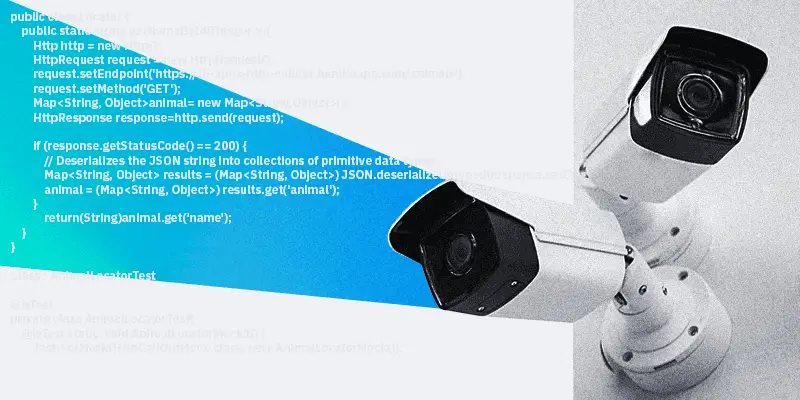Do Salesforce Release Management Suites Affect Data Privacy?
A proper Salesforce release management suite will support faster releases, stronger products, and streamlined systems—all of which strengthen data privacy.
Why It Matters: A recent study found the average cost of a data breach to be $4.35 million. Data breaches are becoming more costly and, unfortunately, more common.
- The rise in remote work has contributed to this increase in data breaches.
- Breaches often go unnoticed for months.
- Internal threats such as accidental deletions combine with cyberattacks to expose, corrupt, or leak critical data.
Here are 10 ways a Salesforce release management suite fortifies data privacy strategies:
- Multiple Layers of Testing
- Ability to Quickly Address Emerging Problems
- Clear Communication Reduces Simple Errors
- Comprehensive Capabilities Eliminate Coverage Gaps
- Repeatable Processes Reduce Confusion
- Better Working Experience
- Increased Accuracy of Planning
- Stronger Products
- More Visibility Reduces Surprises
- Recovery Strategies Keep You Covered

1. Multiple Layers of Testing
Every project produced by a Salesforce DevOps team aims to be of the highest possible caliber. However, without proper management, it is very difficult to consistently produce high-quality products. Updates and applications that function smoothly and predictably offer benefits beyond creating a great user experience.
Error-free code eliminates the bugs that can lead to data privacy vulnerabilities in a live environment.
A Salesforce release management suite offers developers and admins the tools they need to verify proper coding structures at multiple points throughout the development process. This ensures nothing slips between the cracks to threaten data security after production.
2. Ability to Quickly Address Emerging Problems
Issues are going to come up; it’s inevitable. Maybe an update isn’t functioning how it was intended or data security threats pop up. A flexible system that quickly produces patches or updates to address these problems is able to thwart data security threats as they arise.
Automated Salesforce release tools increase release velocity, enabling teams to quickly address issues as they emerge.
Team members’ mistakes, phishing attempts, and compromised servers can all be mitigated with proper attention. A streamlined DevOps pipeline will be better equipped to shore up vulnerabilities before they become larger, more costly problems.
3. Clear Communication Reduces Simple Errors
Cybercrime is projected to cost companies around the globe $10.5 trillion dollars by 2025. And while this needs to be a major concern, it is not the only potential source of data loss, corruption, or exposure.
Internal factors such as accidental deletions and other team member mistakes also lead to costly exposures and threaten the security of a company’s Salesforce environment.
Mitigation techniques need to be instilled in order to protect your network from internal threats. A Salesforce release management suite offers the ability to maintain constant oversight of how your team members interact with your data.

4. Comprehensive Capabilities Eliminate Coverage Gaps
The application development lifecycle results from the effort of numerous people in different departments. And all of these people have specific goals and tasks that intertwine to produce the update or application. However, gaps can emerge between these steps that lead to data privacy vulnerabilities.
Automated DevOps tools work together to create a synergy that integrates the various aspects of a project to create a stronger, safer product.
Tools like static code analysis integrate within a larger CI/CD pipeline so that, when code is committed to the main repository, for instance, it is thoroughly tested and verified to have no negative impacts on other aspects of the product.
5. Repeatable Processes Reduce Confusion
Mistakes occur when it is unclear which team member is responsible for a particular task. And if your team is starting from scratch when it comes to approaching a new DevOps project, it is very likely confusion will arise and lead to more mistakes.
Templatizing DevOps processes with the help of a Salesforce release management suite eliminates this confusion and streamlines the efforts of your team.
Utilizing DevOps tools like version control and data loaders reduces the toll on your employees while also allowing managers to build these processes directly into a project’s plan. And then once they’re proven beneficial, they can be replicated in a way that becomes more comfortable and refined every time they’re used.
6. Better Working Experience
Speaking of team members, it’s important to take them into account when planning the tools they can use. A stronger working environment benefits your team as well as your company. Data security considerations are supported, as are more basic considerations like ROI.
A better working experience keeps employees engaged, which reduces the potential for human error to create data security risks.
Automated tools remove the drudgery from development processes. A reduction in manual processes gives developers the time they need to produce the most secure code possible when creating a new Salesforce product.
7. Increased Accuracy of Planning
Adequate planning is a major factor that influences the success of a DevOps project. Any failures in this plan lead to surprises and, potentially, mistakes. And we’ve discussed how mistakes result in data security vulnerabilities, but they also drastically impact the speed at which a project is completed.
A Salesforce release management suite will provide insights and analytics that can be used to hone a DevOps strategy over time.
These insights highlight opportunities for improvement that can be incorporated into the next DevOps project. Proper planning sets the stage for a smooth experience for your team members.

8. Stronger Products
The manner in which these updates and applications are produced will greatly impact the overall quality of release. Any errors or bugs that aren’t caught in the testing phases can create backdoors for cybercriminals or faulty updates that experience costly misfires.
Automated DevOps tooling creates stronger products that are better equipped to stand up against the efforts of cybercriminals.
Stronger processes create stronger products. And stronger products will offer more value to the end user while also protecting the sensitive data contained within.
9. More Visibility Reduces Surprises
It’s difficult for release managers to keep tabs on everything that happens between development and production. The actions of each team member, the results of all the tests—these types of factors—will have a dramatic impact on the stability of the update or application.
A policy scanner is a critical part of a Salesforce release management suite because it enables managers to enforce all internal rules.
Static code analysis tools also provide increased visibility into code health and technical debt, each of which contributes to data security risks when errors aren’t found and fixed quickly. Together, static code analysis and a policy scanner reinforce security measures while also increasing the quality of every release.
10. Recovery Strategies Keep You Covered
Accidents are bound to happen. It’s impossible to guard your Salesforce environment against every data loss event. Something as uncontrollable as a power outage could wind up having widespread impacts on your system. That’s why preparation is an essential aspect of a release management strategy.
A data backup and recovery tool is part of a complete Salesforce release management suite, and is critical in regaining operations after an outage.
Salesforce is your single largest container of data. And it’s vital that every DevOps project is produced in the most secure way possible. Sourcing the right tools enables your team to create consistent, reliable updates and applications that support your overall data security strategy.

Next Step…
Now that we understand how a Salesforce release management suite can optimize the application development lifecycle, let’s dig into other ways to streamline operations.
Salesforce DevOps tools give your team members the support they need to produce the best products available. Read more here.
